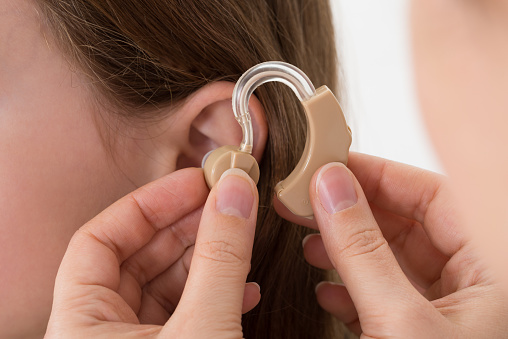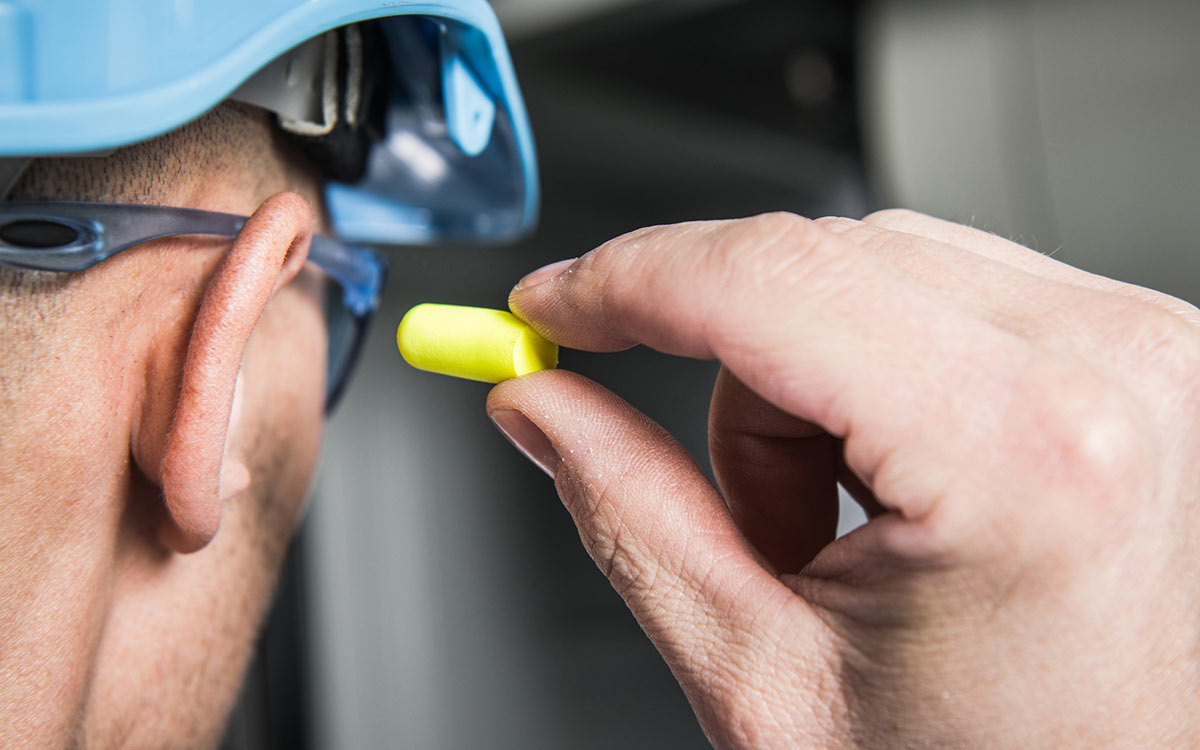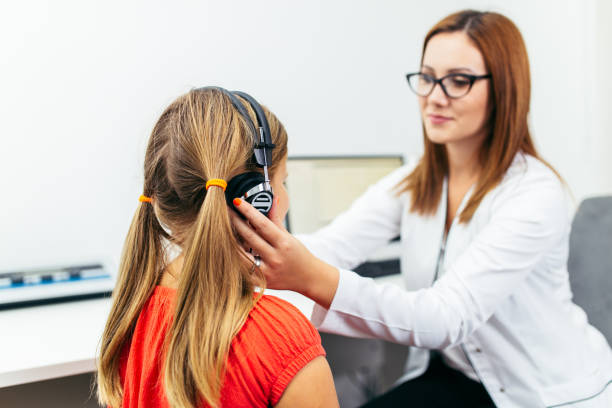Consider regular hearing tests if you work in a noisy environment as this can provide early detection of hearing loss.

Picture: iStock
Hearing loss that occurs gradually as you age (presbyacusis) is common.
About 25% of people between the ages of 55 and 64 have some degree of hearing loss. For those older than 65, the number of people with some hearing loss is almost one in two.
Aging and chronic exposure to loud noises contribute significantly to hearing loss. Other factors, such as excessive earwax, can temporarily prevent your ears from conducting sounds as well as they should.
Talk to your doctor immediately if you have a sudden loss of hearing, particularly in one ear or if your hearing difficulty starts interfering with your daily life.
Signs and symptoms
- Muffled speech and other sounds;
- Difficulty understanding words, especially against background noise or in a crowd;
- Trouble hearing consonants;
- Frequently asking others to speak slowly, clearly or loudly;
- Needing to turn up the volume of the television or radio;
- Withdrawal from conversations;
- Avoidance of some social settings.
Picture: iStock
Causes
• Damage to the inner ear. Aging and exposure to loud noise may cause wear and tear on the hairs or nerve cells in the cochlea that send sound signals to the brain.
Higher-pitched tones may become muffled. It may become difficult to pick out words against background noise. Heredity may make you more prone to these changes. This type of hearing loss is known as sensorineural hearing loss, which is permanent.
• A gradual build up of earwax, which can block the ear canal. Hearing can be restored with earwax removal.
• Ear infection and abnormal bone growths or tumours in the outer or middle ear.
• Ruptured eardrum (tympanic membrane perforation). Loud blasts, sudden changes in pressure, poking your eardrum with an object, or infection can cause your eardrum to rupture and affect your hearing.

Picture: iStock
Prevention
Steps you can take to help prevent noise-induced hearing loss and avoid age-related hearing loss:
• Protect your ears in the workplace. Personal protective equipment for hearing can bring most loud sounds to an acceptable level. Foam, pre-formed or custom-molded earplugs made of plastic or rubber can help protect your ears from damaging noise.
• Regular audiometry. Consider regular hearing tests if you work in a noisy environment. This can provide early detection of hearing loss. Knowing you’ve lost some hearing means you’re in a position to take steps to prevent further hearing loss.
• Avoid recreational risks. Some activities, such as riding a snowmobile, hunting or listening to rock concerts for long periods can damage your hearing. Wearing hearing protectors or taking breaks from the noise can protect your ears. Turn down the volume when listening to music.

Picture: iStock
Diagnosis
Tests may include:
• Physical exam. Your doctor will look for possible causes, such as earwax or inflammation as well as any structural problems.
• General screening. Your doctor may ask you to cover one ear at a time to see how well you hear words spoken at various volumes and how you respond to other sounds.
• Tuning fork tests. These two-pronged metal instruments produce sounds when struck. A tuning fork evaluation may reveal whether hearing loss is caused by damage to the vibrating parts of your middle ear (including your eardrum), damage to sensors or nerves of your inner ear or both.
• Audiometer tests. During these more-thorough tests conducted by an audiologist, you wear earphones and hear sounds directed to one ear at a time. Each tone is repeated at faint levels to find out when you can barely hear. The audiologist will present various words to determine hearing ability.

Picture: iStock
Treatment
Options include:
• Removing wax. Your doctor may remove earwax by loosening it with oil and flushing, scooping or suctioning out the softened wax.
• Surgery may be necessary if you’ve had a traumatic ear injury or repeated infections that require the insertion of small tubes that help the ears drain.
• Hearing aids. These can help by making sounds stronger and easier to hear.
• Cochlear implants. If you have severe hearing loss, a cochlear implant may be an option. Unlike a hearing aid that amplifies sound and directs it into your ear canal, a cochlear implant compensates for damaged or non-working parts of your inner ear.
For more news your way, download The Citizen’s app for iOS and Android.





